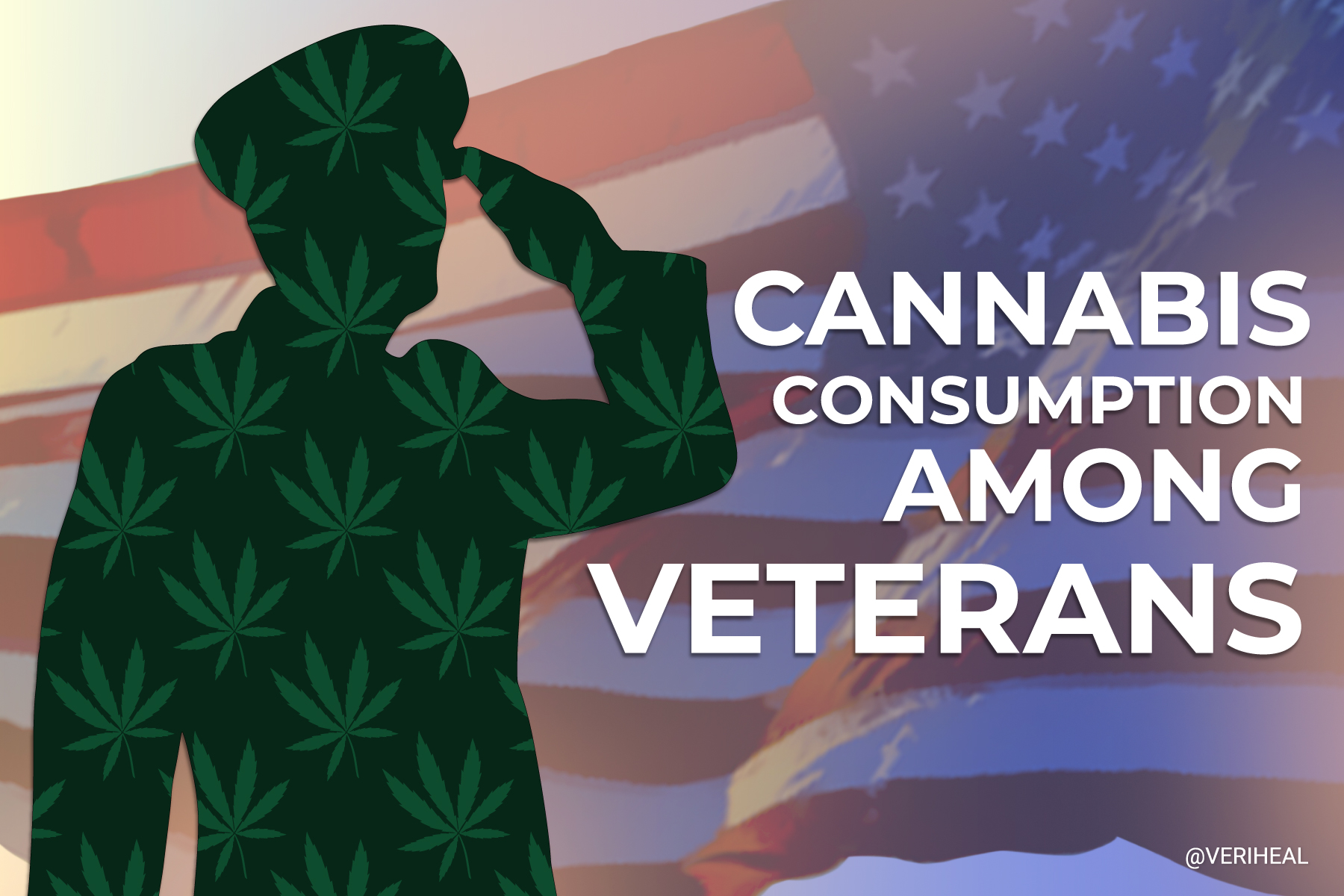The findings of a new study into cannabis use disorder (CUD) among veterans have been released by a team of researchers from Pennsylvania’s Center of Excellence in Substance Addiction Treatment and Education at the Corporal Michael J. Crescenz VA Medical Center.
The team discovered that veterans in vulnerable subgroups face a greater risk of developing CUD or are more inclined to use the plant for recreational purposes. Their hypothesis was published in the American Journal of Psychiatry. By evaluating “the prevalence of past-12-month and lifetime cannabis use and cannabis use disorder” among American veterans, the researchers were able to conduct a rough analysis of consumption behavior among veterans.
Additionally, the team looked into the ways that “nonmedical” cannabis use and CUD correlate with demographic, substance use, and psychiatric disorders. Their goal was to pinpoint the disparities in CUD prevalence and recreational cannabis consumption among veteran groups that reside in both legal and illegal cannabis states.
3,000 Veterans Partook in Survey on CUD
While the pool of study subjects could have been larger, researchers were satisfied with the data they gathered from 3,119 respondents. All respondents identified as American military veterans, and the information was pulled from a 2012–2013 National Epidemiologic Survey on Alcohol and Related Conditions–III (NESARC-III).
To accurately assess the connection between CUD and adult cannabis use among veterans, the team of researchers utilized a logistic analysis model in combination with clinical and demographic coordinates. Using this information, they managed to gain a clearer understanding of recreational cannabis consumption frequency contingent on each veteran’s state of residence and the cannabis legalization status in their respective home states.
CUD and adult cannabis use prevalence were determined over the course of the last 12 months. The findings showed that consumption clocked in at 1.8% and 7.3%, respectively. Conversely, lifetime cannabis prevalence was 5.7% and 32.5%.
Among adult cannabis consumers, the team of researchers estimated that previous 12-month and lifetime CUD prevalence rested at 24.4% and 17.4%, respectively. “Nonmedical cannabis use and use disorder were associated with most psychiatric and substance use disorders examined,” the authors wrote.
Cannabis Consumption Behaviors Differed Between Demographics
Perhaps the most notable takeaways from this study on CUD and adult cannabis consumption among veterans were the correlations pertaining to different sociodemographic groups. Some of the sociodemographic groups analyzed for this study included single (unmarried) veterans, young veterans, male veterans, veterans who reside in a medical cannabis-friendly state, and veterans on a low income.
“Among veterans, the odds of nonmedical cannabis use and use disorder were elevated among vulnerable subgroups, including those with lower income or psychiatric disorders and among survey participants residing in states with medical marijuana laws,” said the study’s lead author, Kendall C. Browne, Ph.D.
He emphasized how the study’s findings demonstrate the need to bolster screening practices and increase the number of available resources for veterans who fall into a “high-risk” category for developing CUD. “The study findings highlight the need for clinical attention (e.g., screening, assessment) and ongoing monitoring among veterans in the context of increasing legalization of cannabis,” added Browne, who is currently in the process of fronting a more in-depth clinical research undertaking.
Browne’s new project involves gleaning electronic medical record statistics from the Veterans Health Administration. He and his team will analyze the data to ascertain the repercussions that medical/recreational cannabis laws have on psychotropic medication prescriptions and opioids, including rates of opioid use disorder, fatal and nonfatal overdoses, and prescriptions.
Senators Voted to Broaden Medical Cannabis Access for Veterans
In separate yet related news, an influential Senate committee recently approved an amendment that will provide military veterans with greater access to medical cannabis treatments. Sponsored by Sen. Jeff Merkley (D-Ore.), the measure was approved with a voice vote in the Senate Appropriations Committee on Aug. 4.
The amendment seeks to provide doctors in the U.S. Department of Veterans Affairs (VA) with the power to write cannabis recommendations, so long as the veteran resides in a state that has legalized cannabis. Additionally, the bill would restrict the VA from obstructing and rejecting medical cannabis services to veterans who have enrolled in a state-legal program.
“We have now 36 states that have medical cannabis, and our veterans want to know from their VA doctor what their thoughts are on the pros and cons or appropriate role or challenges of this particular strategy for treating a variety of issues, including PTSD,” explained Merkley. “I think it’s really important that we not force our veterans to be unable to discuss this issue with their doctors.”
Featured below is an excerpt from the amendment text, which is included as part of a bill, outlining the funding avenues for the VA for Fiscal Year 2022:
“SEC. ___ None of the funds appropriated or otherwise made available to the Department of Veterans Affairs in this Act may be used in a manner that would:
- Interfere with the ability of a veteran to participate in a medicinal marijuana program approved by a State;
- Deny any services from the Department to a veteran who is participating in such a program; or
- Limit or interfere with the ability of a health care provider of the Department to make appropriate recommendations, fill out forms, or take steps to comply with such a program.”
In 2018, a comparable proposal was also introduced by Sen. Merkley. Despite clearing the Appropriations Committee, it failed to progress further. Over the years, the House has repeatedly given similar chunks of legislation the green light. Nonetheless, a law to enable the issuing of medical cannabis prescriptions by VA doctors has never reached the stage of being officially effectuated.
Author, Share & Comments















